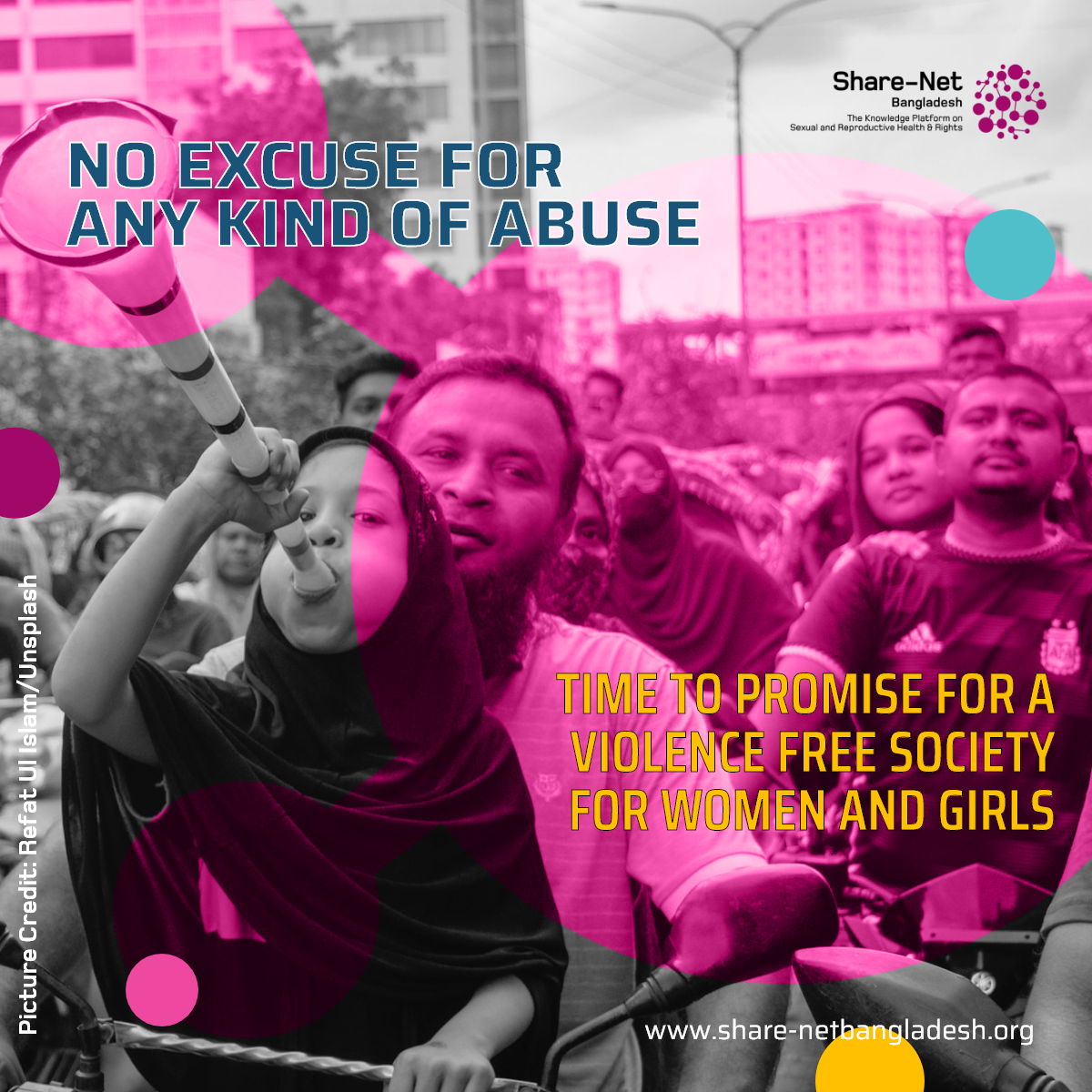No Excuse for Any Kind of Abuse: Time to Promise for a Violence Free Society for Women and Girls
“He said he loved me, but the bruises told a different story,” shares Farida, a 28-year-old mother of two from Dhaka. For years, she endured abuse at the hands of her husband, hoping it would stop. It never did. Meanwhile, Laila, a 19-year-old college student in Narail, recounts, “When I refused his advances, the harassment moved online. It didn’t stop until I deleted all my social media accounts.”
These stories are not isolated incidents. Every ten minutes, somewhere in the world, a woman is intentionally killed by her partner or family member, or even being harassed in virtual platforms. This stark reality underlines the urgent crisis of gender-based violence (GBV), a pervasive violation of women’s rights and a barrier to achieving gender equality.
The Alarming Reality of Gender-Based Violence (GBV)
Nearly one in three women globally experience violence in their lifetime, with adolescent girls being particularly vulnerable—one in four face abuse from partners. The most extreme manifestation of this violence is femicide, the intentional killing of women due to their gender.
In 2022 alone, 55% of female homicides were committed by intimate partners or family members, compared to only 12% of male homicides. But the danger extends beyond homes. Women in public spaces, including activists, journalists, and politicians, face relentless threats and violence, sometimes culminating in murder. Digital spaces are no safer; studies show that up to 58% of women experience online abuse, with younger women—especially those from Gen Z—being the most targeted.
This normalisation of violence creates a culture where abuse thrives unchecked, with systems meant to protect women often failing them.
A Barrier to Progress in Sexual and Reproductive Health and Rights (SRHR)
GBV is intricately linked to sexual and reproductive health and rights (SRHR). Survivors often face physical and psychological trauma, leading to unwanted pregnancies, unsafe abortions, and sexually transmitted infections. Limited access to reproductive health services further exacerbates their plight, denying them the autonomy to make informed choices about their bodies.
Moreover, in conflict and crisis zones, the situation is even grimmer. Seventy percent of women in these settings experience GBV, making it nearly impossible for them to access essential sexual and reproductive health services.
The Call for Action: Prevention and Accountability
The 16 Days of Activism against Gender-Based Violence, under the theme “Every 10 Minutes, a Woman is Killed. #NoExcuse. UNiTE to End Violence Against Women,” emphasises the urgent need to break the cycle of abuse.
Ending GBV requires a multi-pronged approach:
- Governments must enforce laws and fund National Action Plans to prevent violence and support survivors.
- Organisations should establish zero-tolerance policies and actively champion women’s rights.
- Individuals can advocate for survivors, donate to local women’s organisations, and amplify anti-violence messages using platforms like #NoExcuse and #16Days.
The upcoming 30th anniversary of the Beijing Declaration and Platform for Action in 2025 provides a timely opportunity to reaffirm global commitments to gender equality. As the world strives to meet the Sustainable Development Goals, ending GBV remains non-negotiable.
Behind every statistic is a story—stories like Farida’s and Laila’s—that demand urgent action. Violence against women and girls is not inevitable; it is preventable. The time to act is now. There’s no excuse for any kind of abuse. So, stand together to end violence against women and girls. Together, we must challenge norms, demand accountability, and build a future where every woman and girl lives free from fear.
Source: UN Women
Picture Credit: Refat Ul Islam/Unsplash


